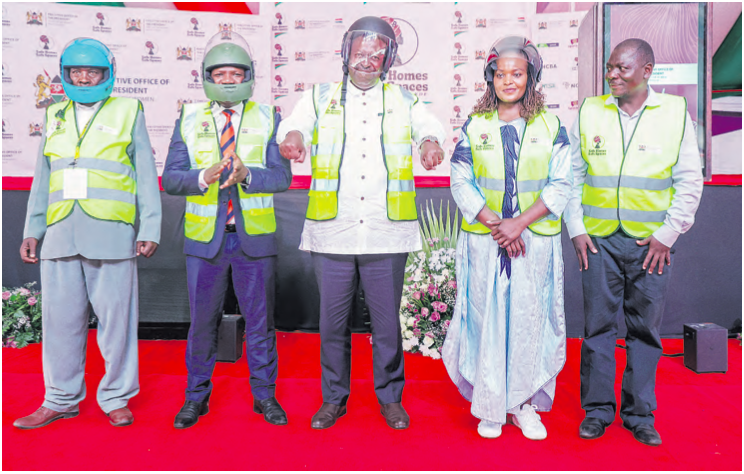

The government is planning to establish a gender-based violence fund that will help state programmes and campaigns against the vice and offer comprehensive support to victims.
Prime Cabinet Secretary Musalia Mudavadi said the government is exploring mechanisms for setting up the kitty under the Office of the Women Rights Adviser.
“We are particularly concerned about the alarming cases of violence against women, including intimate partner violence, reported in Kenya in recent months,” he said.
Mudavadi said the trend shows a breakdown in national values and morals and exposes the glaring gender inequalities and discrimination against women and girls.
He said GBV has far-reaching effects across various sectors in the society, noting it directly costs economies up to four per cent of national output besides causing injuries and even death of the victims.
“We must stop normalising crime at home and join hands in creating safe homes and safe spaces for all citizens,” he said.
He made the remarks when he presided over the launch of the ‘Safe Homes Safe Spaces’ initiative in Kakamega on Monday.
The initiative highlights the urgent need for a collaborative government-led campaign to create awareness across all sectors to individually and collectively, recalibrate minds and embrace non-violent means of resolving differences.
He said that millions of women and girls suffer from this vice in every country and culture worldwide, with one in three women experiencing violence in their lifetime globally, according to the UN Women’s report released two weeks ago.
Similarly, femicide-related cases cause a woman to lose her life every 10 minutes and Africa had the highest number of reported femicide cases in 2022 compared to other regions.
The report further said Africa recorded the largest ‘absolute and relative’ numbers of female intimate partner and family-related killings last year, with an estimated prevalence of 2.9 victims per 100,000 females.
The report attributes the situation to the prevailing highly patriarchal societies where men have authority over women in all aspects, from politics to morals to economics and even to the actions of women.
“GBV remains a major barrier against women’s participation in education and the labour market,” Mudavadi said.
“We embrace the call by President William Ruto, to all citizens to join him in reversing the increasing cases of femicide.
“We cannot continue living in a country where our girls and women are not guaranteed they will arrive safely at their destinations anytime they take public transportation or walk home.
“We cannot live in a country where our boys and girls are depressed and suffering mental health due to cyberbullying, harassment, abuse, and sextortion each time they log onto online social media portals.”
Mudavadi reiterated the need for law enforcement agencies to undertake their duties with patriotism and due care for GBV victims and their families.
He also urged all counties to consider creating a dedicated budget line to cater to gender parity activities at the grassroots levels.
Enhancing understanding and respect for women and girls at the community level, he said, would challenge gender stereotyping and retrogressive cultural practices that contribute to GBV and femicide.
“Let us all re-think our cultures in line with the provisions of our constitution. We must stop normalising crime at home. Slapping your wife is not a show of love. It is a punishable crime.”
Adviser to the President on Wom- en’s Rights, Harriette Chiggai, said the three-year ‘Safe Homes Safe Spaces’ initiative aims to reduce incidents of SGBV through awareness creation, advocacy and media campaigns, strategic support, and targeted legal and institutional reforms.
The initiative will also address systemic challenges, including domestic violence, violence against children, and harmful practices such as female genital mutilation.
The 2023 Kenya Demographic and Health Survey says more than 11 million women ( 20 per cent of the population) have experienced physical or sexual violence from an intimate partner during their lifetime.
Of these, 2.8 million experienced this violence in the past 12 months. “I encourage all victims of SGBV to report cases of abuse without fear. Our laws have gone beyond the physical offences and now provide for SGBV offences committed online,” Chiggai said.
“The Computer Misuse and Cybercrime Act, 2018 was enacted to penalise perpetrators who use technology as a tool of violence.
“I am aware in all the 47 counties we have active GBV and FGM Working Groups which play a crucial role in coordinating comprehensive responses to gender-based violence.
“The Victim Protection Act provides for the use of witness protection boxes in court and concealment of identity of vulnerable witnesses such as children and victims of sexual violence. A witness can be placed under the Witness Protection Agency in the event that they are facing threats and intimidation.”













